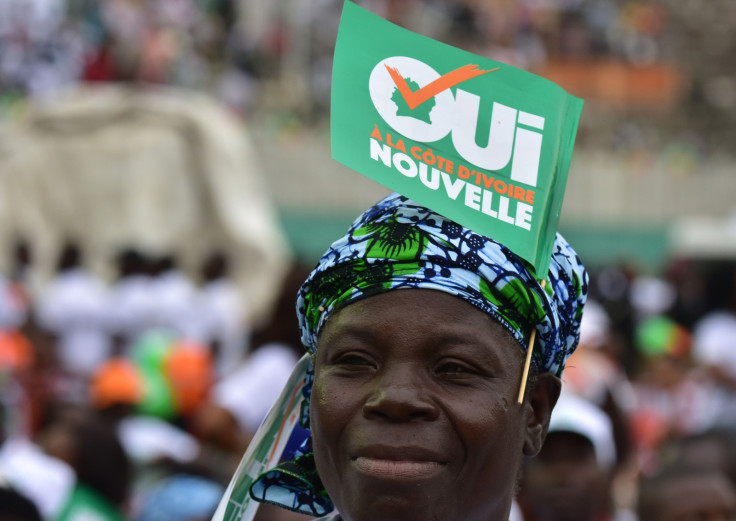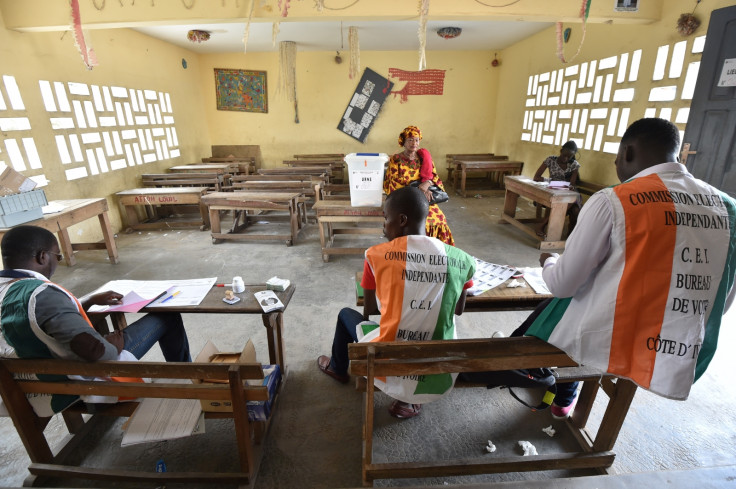Ivory Coast: 93.43% of voters approve new controversial constitution, officials say
Opposition groups contest official 42.2% turnout figure, claiming it is 'inflated' and invalid.

Ivory Coast' electoral commission has confirmed that the 'Yes' campaign has won Sunday (30 October)'s referendum on a new constitution, with 93.42% of the votes.
Following a short campaign for changes President Alassane Ouattara said will help end years of unrest, voters were asked to approve a draft constitution.
The new text contains provisions that the opposition contended will significantly strengthen the power of the presidency, with one of the proposed modification effectively scrapping a clause that sets 75 as the age limit to be able to run for president.
While violence was reported in between 100 and 150 polling stations out of the nations' 10,000 – with stations held up by young men with knives and ballot boxes were taken away in some cases – the turnout was 42.42%.
This figure is higher than the 7% estimate by opposition parties that boycotted the vote, and opposition groups have contested the official turnout, claiming it is "inflated".
Heavyweight leader and president of the FPI party, Pascal Affi N'Guessan said Sunday's referendum was marred by "corruption and ballot-stuffing".
Earlier local reports said the turnout had fluctuated between 15% and 40% for each polling station – lower than the 2015 presidential election when 54.6% of voters cast ballots. Independent observers have so far not objected the official result.
Rights groups have spoken of fears that the amendments to the constitution – such as the abandon of referendums for certain provisions and the need for only two-thirds of the Senate, a third of which is appointed by the president – to forfeit changes. Many in Ivory Coast see Ouattara as having control over the legislator.
Absence of attempts to really engage the population
The lack of interest was primarily due to an absence of attempts to really engage the population in the discussion during the brief seven-day campaign, and the outcome was already known following the opposition's boycott of the vote.
In the lead-up to the referendum, opposition leaders had led rallies in the economic capital Abidjan, but demonstrators opposed to the constitution have at times been prevented from holding street protests and demonstrations during and after the seven-day campaign period. Human Rights Watch claimed opposition parties' ability to explain their position to the public during their 'No' campaign had been "severely undermined".
"The election campaign did not give enough time for opposition parties and anyone supporting the 'No' campaign to explain to the population what was in the constitution and what the arguments for and against were," Jim Wormington, researcher with Human Rights Watch's Africa Division, told IBTimes UK from Abidjan.
There is also some disenchantment with the government from pro-Ouattara supporters, who feel they may not really seeing the trickle down impact of economic growth – and boycotting the vote may also been a way of expressing frustration.

© Copyright IBTimes 2025. All rights reserved.






















